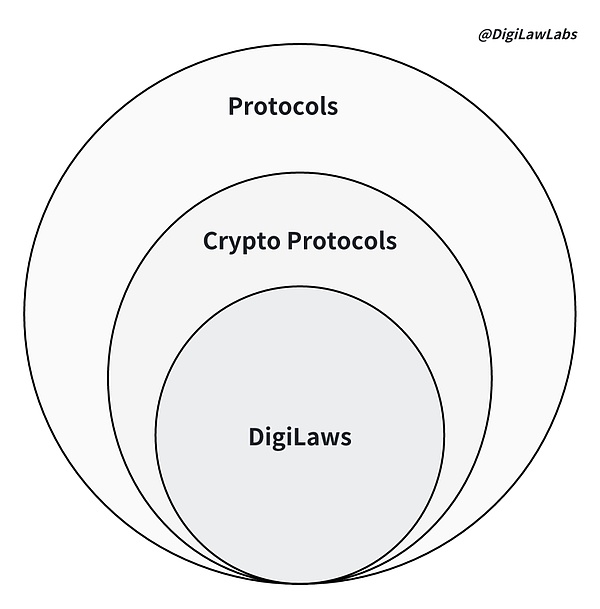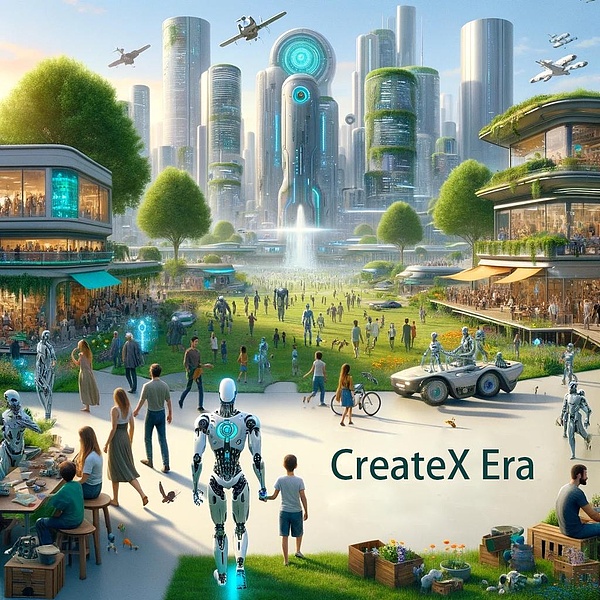The chaos and lack of innovation in the crypto world make people wonder: Are we moving towards an ideal future in a substantive way? The preface of "Protocol Revolution and DigiLaw Engineering" explores the essence of the crypto world, the bottlenecks in development, and the infinite possibilities of future construction from a systematic perspective, providing important thinking for understanding the true face of this new planet.
Matt Huang pointed out in "Casino on Mars" that the crypto world is a new planet worth building because it provides a blank sheet of paper and we have the opportunity to establish a new property rights system and build an upgraded financial system and Internet platform. This is an analysis from a relatively macro perspective. If we start from a more microscopic and first principles perspective, what is the essential value of the crypto world? What is the most essential difference between it and the existing world system? Where does the unchanging foundation and driving force for its vigorous development come from?
Matt Huang pointed out in "Casino on Mars" that the crypto world is a new planet worth building because it provides a blank sheet of paper. We have the opportunity to establish a new property rights system and build an upgraded financial system and Internet platform. This is an analysis from a relatively macro perspective. If we start from a more microscopic and first principle perspective, what is the essential value of the crypto world? What is the most essential difference between it and the existing world system? Where does the unchanging foundation and driving force for its vigorous development come from?
Tokenized decentralized protocol: the core value of the crypto world
Personally, I believe in Bitcoin and am optimistic about the future of smart contracts and Web3 represented by Ethereum. But as a researcher, I have been asking myself over the past few years: Putting aside all the gorgeous words and hot concepts, when it comes to 2050, when humans look back at the entire crypto world built on blockchain, what is its most essential value?
I currently have a vague answer in my mind: Tokenized decentralized protocols are the most essential value of the entire crypto world.
In order to better express this core insight, I call this type of "tokenized decentralized protocol" "DigiLaw". Because the term "protocol" is too broad, TCP/IP protocol, Paris Climate Agreement, traffic rules, house purchase contracts and even verbal agreements are all protocols, but they are different from the "crypto protocol" we are discussing here. Today's "crypto protocols" mainly include two categories: "blockchain protocols" and "smart contract protocols". I call this type of crypto protocol that aims to promote decentralization and tokenization in a transparent way "DigiLaw" (see the figure below for the specific relationship).

Digital Natural Laws: Unalterable Cryptographic Consensus
"DigiLaws" is inspired by "Digital world" and "Laws of nature", which literally means that such cryptographic protocols will eventually be as transparent and unalterable as the laws of nature (Note: for non-crypto users: "Unalterable" here does not mean that the protocol remains unchanged, but that changes to the protocol need to be made under collective consensus and are not subject to the will of a few people).
"DigiLaw" not only allows non-crypto users to see its essence at a glance, but also always warns crypto participants not to be overwhelmed by the gorgeous narrative of the project, but should use the high standards of "DigiLaw" to examine whether it adheres to the principles of transparency and unalterability. Even if the project cannot be fully decentralized and tokenized at the beginning, the entire process should be transparent to minimize the possibility of using information asymmetry to do evil. When "DigiLaw" becomes a social consensus, we can work together to break through the disguise of centralized projects and return to the original intention of the crypto world "Can't be evil".
"Decentralization" and "tokenization" of "DigiLaw" are indispensable. As Vitalik said in his Token2049 speech in 2024: Blockchains create persistent structures that can be extremely robust. "Decentralization" provides a rigid algorithmic consensus for "robust". It enhances the immutability of the protocol, making it closer to the laws of nature, thereby creating a "trustless" environment and minimizing the potential malicious space of the protocol; on this basis, "tokenization" provides a lasting social consensus for "robust". It attracts a large number of participants to jointly protect the agreement through incentives, thus forming a social consensus that transcends algorithms, transcends time, is extensive and indestructible. This unshakable collective will makes the immutability of the agreement truly realized. At the same time, the incentive given by "tokenization" will also help the value creation of the agreement, giving it a life-like initiative, so that it continues to grow into an "attention black hole" ("attention black hole" refers to the "black hole" formed by countless attentions connected together, which can significantly affect the development of the world and collapse the future).
CreateX Era: Unleash the Digital Leap of Human Innovation
In the future digital society, DigiLaw will become a new primitive for humans and AI to survive. This primitive is a "digital natural law" designed by humans but cannot be tampered with. From then on, the digital world is no longer entirely built by humans, but has mutated into a part that can collaborate with AI to self-evolve "digital nature". In digital nature, trust no longer needs to be established at a high cost, but is directly encoded in DigiLaw. Network participants can reach consensus based on a set of "immutable rules" supported by encryption technology and mathematical principles, rather than central authority or third parties, which naturally forms a "trustless" environment.
In such a trusted, equal and open environment, value can flow freely, and innovation will no longer be restricted and reviewed by "centralization". Coupled with the incentive given by tokenization, a natural global, bottom-up, and explosive innovation involving all mankind will naturally emerge.
For example, in the real world, if you want to implement an idea, you need not only to obtain permission from all parties, but also to form a team and invest a lot of time, energy, and capital to promote this process. In the crypto world, the threshold and cost of innovation are greatly reduced. As long as you have an idea, you can start doing it immediately without obtaining any permission. In addition, the rich and almost free "digital natural resources" provide a large number of basic "Lego blocks" for innovation. In the near future, you can even set up a professional AI team at a very low cost to help you build and promote your original "DigiLaw Lego" 24 hours a day. Everyone can use the existing "Lego" as a "building block" to quickly build a large number of new "DigiLaw Lego" with higher level and complexity. The explosive bottom-level autonomous innovation will promote the emergence of the diverse ecology of digital nature at an immeasurable speed and autonomous evolution without restriction. The results of the "protocol revolution" will penetrate into all aspects of the economy and society at an exponential rate, a new paradigm will be established, and the development of digital nature nurtured by encryption technology will quickly surpass digital artificiality. In this never-ending "protocol revolution", the crypto world will also expand into an "endless future", when our thinking and lifestyle may be profoundly changed. Most repetitive routine work will be easily handled by AI, and humans will no longer be troubled by the pressure of survival. The trustless digital natural environment will maximize the innovation potential of all mankind. Driven by the collaboration of AI and humans, the subjective attention of the whole world will be more transferred to the pursuit of creation and experience. It will be a new and dynamic era. I call it the "CreateX era".

However, we are still in the early stages of the exponential development of the crypto world, and for most people, this answer is not obvious.
 Xu Lin
Xu Lin
 Xu Lin
Xu Lin JinseFinance
JinseFinance JinseFinance
JinseFinance Huang Bo
Huang Bo Jixu
Jixu Beincrypto
Beincrypto decrypt
decrypt Coindesk
Coindesk Beincrypto
Beincrypto Bitcoinist
Bitcoinist